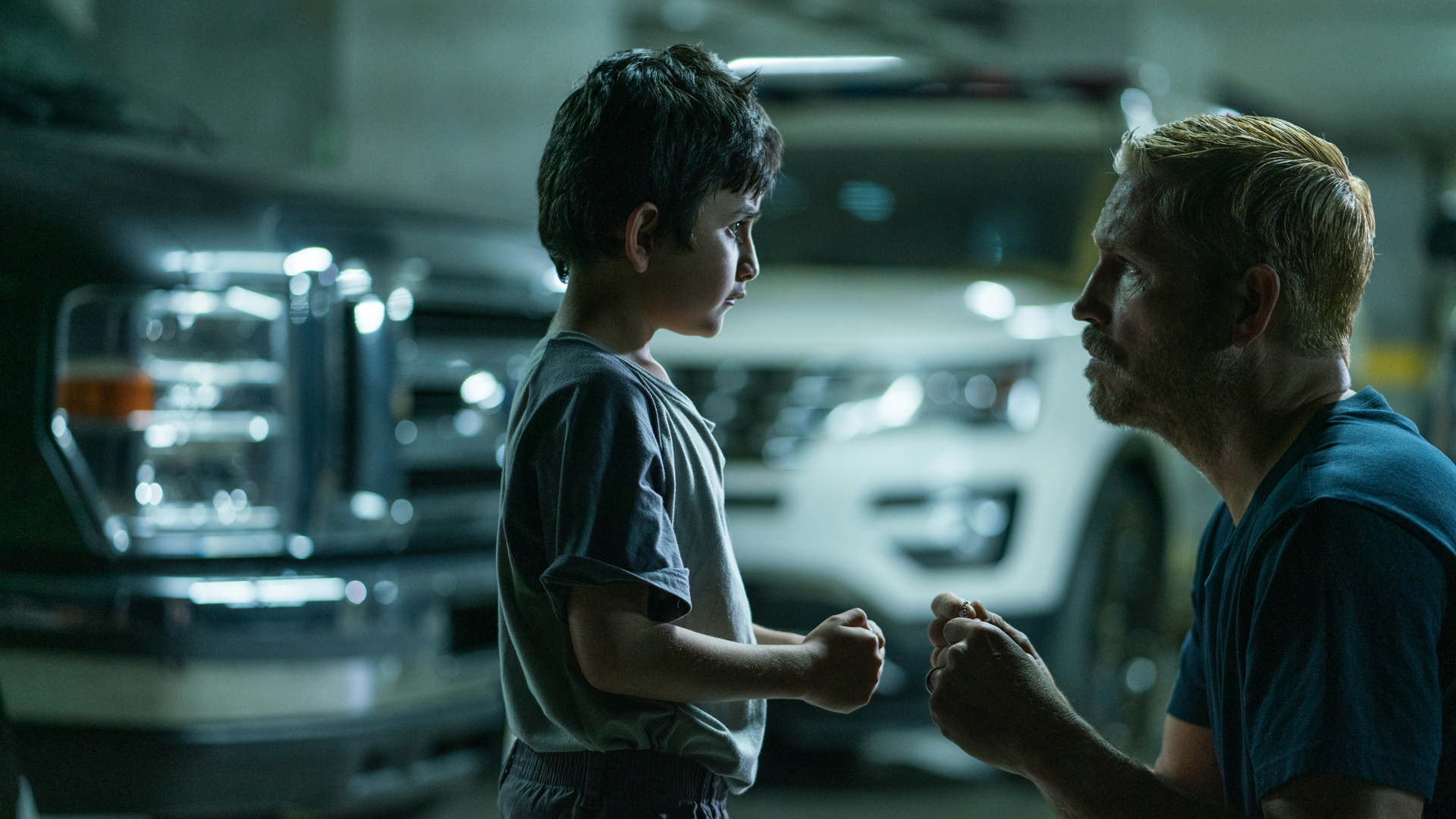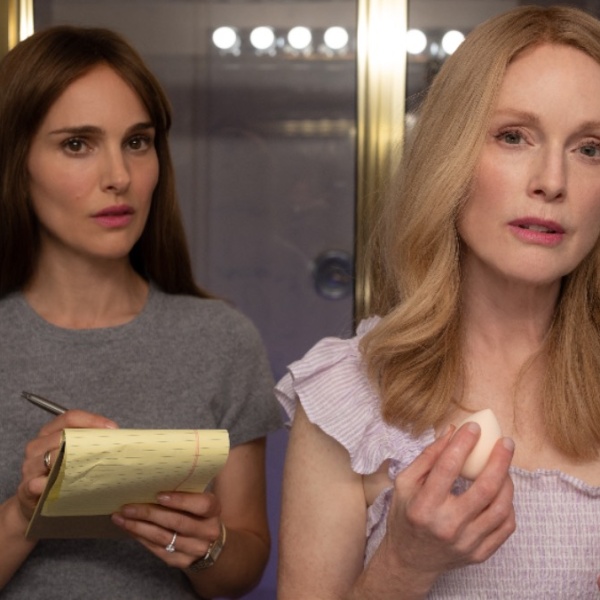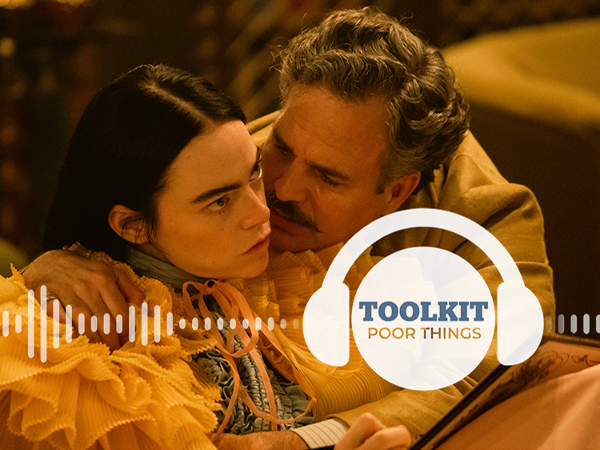After the release of “Sound of Freedom” in July, journalist and trafficking survivior-turned-advocate Sabra Boyd said she heard the refrain over and over: “How dare you criticize this. Don’t you want to save the children?”
Boyd criticized the film on Twitter, calling it “trauma porn” and writing that, like “Taken,” it ignored bigger realities of abuse that don’t lend themselves to sensationalized action movies. However, “Sound of Freedom” opened her to an unexpected level of online harassment.
“The thing that made me spend two days crying was I got called a pedophile, simply because I criticized ‘Sound of Freedom.’ I just can’t comprehend calling someone that,” Boyd told IndieWire. “That’s not a word that you just fling around, especially to someone who is a survivor of pedophile predators. You can’t say that to someone if you don’t understand what that word means. I can’t think of a more vile thing to call someone. And I was called that by a lot of people.”
In the three months since its release, “Sound of Freedom” grossed $234 million worldwide and became a lightning rod for its controversies, inaccuracies, and harassment against critics, as well as for scrutiny of its subject, Tim Ballard, and his anti-trafficking organization, Operation Underground Railroad. It’s set for digital release today, October 13, and it’s likely to become part of the national conversation all over again.
IndieWire spoke to multiple trafficking survivors in reporting this story who said that “Sound of Freedom” perpetuates common myths. These include: Sex trafficking is far more prevalent than labor trafficking, is the “most brutal,” and deserves more of our attention. Only minors and kids are victims, not countless adults. Trafficking is a foreign problem and isn’t prevalent in America. Abusers are strangers in white vans, rather than a family member or someone the victim knows. Every victim needs “rescuing” to get out of their situation.
“It confirms all these conspiracy theories that people have, and when your conspiracy theory is confirmed, you don’t have to talk to people it happened to, or listen to them, because that’s the uncomfortable part,” said survivor Anastasia Lynge. “It’s a big white man who was in the military and that makes people feel really safe. I’m being looked out for by this guy and he’s going to rescue all these kids and make them feel okay. When people have this savior like that, it makes them feel comfortable, and they don’t have to acknowledge the fact that most people who are being trafficked don’t get saved by anyone.”
According to Melinda Smith, a representative for anti-trafficking group Freedom Network USA, it’s true that children around the world experience exploitation, including those communities depicted in the film. However, it is far from what the majority of trafficking cases look like in the U.S. It also portrays an actual anti-trafficking organization, which makes pushing back on the movie’s well-documented inaccuracies and narrative liberties — even by the organization itself! — extremely difficult.
Chris Ash, who leads the National Survivor Network, says that in reality, escape from trafficking usually isn’t a binary situation. It’s rarely a matter of extraction, or even direct intervention from law enforcement (or vigilantes). Survivors spend years extricating themselves from dangerous situations, using hotlines and other support networks to carefully leave without harming themselves or other loved ones. It’s a slow-burn story — not the stuff of two-hour action movies.
“Fans of it approach it with such fervor, it doesn’t matter what anyone says. ‘It’s real,’” Ash said. “When people of any experience say the kinds of stories and model of trafficking depicted in this and other Hollywood representations aren’t accurate, you get personally attacked. A lot of us have been personally attacked, even survivors. People on social media when they’ve raised critiques about the movie have said things like, ”Well, I’ve found the pedophile.” You’re talking to a survivor of child exploitation. It’s infuriating.”
“There were a lot of people scared to say anything about [“Sound of Freedom”],” Lynge said. “People were publicly coming out and saying, ‘You must be a trafficker too if you think this movie is bad. How dare you!’ Jumping to that right away without even having a conversation of, ‘How did this impact you?’”
Eduardo Verástegui is the film’s producer and one of its actors. (Last month, he also announced his candidacy to run as a right-wing president of Mexico.) In an interview with IndieWire, he said he wanted to apologize to those that have been labeled pedophiles or have been harassed for criticizing the movie — and he was among the guilty.
In a July interview with Fox News, Verástegui reacted to criticism that labeled the film a QAnon project by saying, “Maybe [the critics are] involved in the crime, maybe they’re the pedophiles.” Three months later, he said his comments were knee-jerk reactions as an independent producer defending his movie after eight years of fighting to get it made.
“I don’t mean it like that, 100 percent,” he said. “I was so frustrated about, wow, we are provoking a very healthy dialogue about a horrible reality, and this is the one issue that we all have to be together.”
Verástegui also acknowledged that there are many forms of trafficking and sexual abuse and said he’s heard many other stories from survivors since the movie’s release.
“It’s impossible to tell a movie about everything,” he said. “I’m grateful … that we provoke a social dialogue about this problem, but it’s bigger than what we saw in this movie.”
Advocates with lived experiences say they don’t see their experiences on screen because they aren’t stories that lend themselves to blockbusters. “Sound of Freedom” represented a surprise hit to Hollywood, but for trafficking survivors the story was depressingly familiar: Filmmakers mine trafficking for drama, make money; survivors try to dispel the myths, face personal attacks.
“I have not spoken to one survivor who is supportive of the film,” said Smith. Anti-trafficking organizations don’t always align, she said, but here they are “united” in giving audiences more education on the subject.
“It’s clear this has really resonated with folks who don’t have a lot of context,” she said.

Of course, Hollywood has been known to bend, stretch, or disregard the truth in favor of crafting a story that can make a buck (or a franchise). However, for trafficking survivors the pain goes beyond seeing the misrepresentation of their experiences: It has the potential to shape funding and policy for years or decades to come.
Like most films, “Sound of Freedom” and “Taken” are for-profit endeavors that don’t fund anti-trafficking work. (“Sound of Freedom” ends with a call to action to buy more tickets via Angel Studios’ Pay It Forward model.) They also don’t create awareness of actual issues.
“That’s one of the things that was frightening for us,” said Ash. “Even with a movie that’s fictional, it impacts survivor’s lives, because it shapes policies that people think are needed. It shapes what we’re looking for when we look for human trafficking, which causes us to miss a whole lot of trafficking. But when you have a movie that is supposedly about a real person, with a real organization, then the impacts on actual survivors are even more direct.”
“The vehicle that is carrying the message has turned into a behemoth,” Smith said. “When we message and put out a story into the world that is significantly derailed from the day-to-day experiences of survivors, it shapes public opinion, we have political leaders screening the film, it shapes public policy, and it shapes where the money goes.”
Even if the movie doesn’t lean on QAnon themes, which its filmmakers have firmly pushed back on and which Verástegui says he doesn’t believe, Ash said “Freedom” is “politically convenient” and an appealing story for a subset of Americans who want to believe other countries are “broken and horrible,” who fear immigration, or who believe military raids and intervention from law enforcement are the only solution to problems.
That’s a key facet of the proposed National Human Trafficking Hotline Enhancement Act, which Florida Rep. Laurel Lee (R) introduced to Congress in January. The proposed bill would “require entities that contract with the National Human Trafficking Hotline to cooperate with State and local law enforcement agencies when receiving tips via the Hotline.” The National Survivor Network is advocating against the legislation because it believes it would threaten the safety and privacy of survivors who call hotlines believing that their anonymity would be maintained.
“We’ve seen politicians be able to leverage this movie to sway hearts,” Ash said. “That’s what art and media does is move people’s hearts, and now you’ve got a room full of people who have engaged with this really compelling story that is making them want to support a candidate who is going to Do Something without realizing that every intervention has people that it helps and people that it harms.”

Verástegui says following screenings of the film in Latin America and in the U.S. with government leaders, he’s extended invites to lawmakers on the left and right and has proposed legislation he believes would be bipartisan. He also says his goal is to empower every organization fighting human trafficking.
“How can we turn it into a priority? It’s not going to be through a foundation or through two, three, or four, or five nonprofits. It has to be through movement,” he said. “You create a movement that you can put pressure on a government, and they react, because otherwise, they look suspicious. So that’s why this is so important. You have to leave a legacy behind that it’s permanent.”
“Sound of Freedom” has brought increased awareness to human trafficking and inspired activist groups to rally for greater funds, education, and awareness. Freedom Network created additional resources to help local advocates field questions from community members with questions or looking to get involved. It has also started a coalition of other national trafficking groups to make sure the messaging is clear and consistent.
The National Survivor Network held informal gatherings to offer support for survivors who may have been attacked for criticizing the film. It also led a Human Trafficking 101 session on Capitol Hill to demonstrate that no single piece of legislation that will solve all trafficking issues. Ash believes the session could become an annual event for Congress.
Boyd, Lynge, Ash, and others created a list of survivor-vetted films and series they believe depict a more nuanced look at trafficking, including “Orange Is the New Black” and the 2003 kids’ movie “Holes.” They’re skeptical that most Hollywood stories can capture what trafficking is really like, but believe trafficking survivors have a lot to offer to the conversation and are rarely given the platform.
“No survivor is voiceless,” Boyd said. “It’s just that we’re not listened to.”






